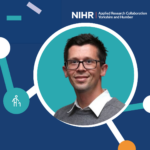Background
Older people are more likely to be ‘digitally excluded’. This refers to them not using the internet, so missing out on things that could be helpful to their well-being and health (e.g. making appointments, banking, connecting with family). Support and training is available to increase digital inclusion but there is no process in place to identify everyone needing help. Support tends to be offered only when people come into contact with health, social care or community services, rather than through actively identifying people who are digitally excluded. This means that some older people who might benefit from support are not offered it, and we don’t know what support is best for them.
Aims & Objectives
- Develop an inclusive way of identifying older people who are digitally excluded
- Explore older people’s views of the internet and what might help them get online
- Adapt available digital support so it addresses a wide range of needs
- Test this new approach with a group of older people
Methods
We will send a survey to people aged 65+ who are included on GP registers, and ask about their internet use. Using their responses we will develop a model that predicts who is more likely to not use the internet.
We will talk to older people about their internet use. We will also talk to voluntary organisations that currently provide digital help and support to find out what they do. In workshops with older people and service providers (in a process called co-production) we will explore the needs of those who don’t use the internet. We will review and adapt existing digital support services to make them more accessible to and appropriate for people who are digitally excluded. We will test the adapted service with a group of older people to find out whether it is acceptable.
PATIENT AND PUBLIC INVOLVEMENT
We have spoken to older people who are part of our community study of ageing, Age UK Leeds’ Older People’s Group, and regional groups serving diverse communities. All those consulted think the proposed work is important, relevant and timely in our increasingly digital world, and are keen to provide support.
DISSEMINATION
The methods we develop to identify digitally excluded older people, and the support services we develop will be widely publicised: we will talk to commissioners of services, policy makers and older people. We will present our findings at community forums and in academic journals.
Investigators:
Liz Graham, Anne Forster, Alison Iliff, Claire Walker, Andy Clegg, Sara Humphrey, Jessica Johansson, Kate Best and Marilyn Foster
Further information
For further information contact Liz Graham or Caroline Brundle
